Congratulations to the 2023 Fastcase 50 award winners
Click here to see the Fastcase 50 Class of 2023!
Honoring the law’s smartest, most courageous innovators, techies, visionaries, & leaders. Lawyer or nonlawyer, techie or nontechie, anyone is eligible.
Created in 2011, each year the Fastcase 50 award honors a diverse group of lawyers, legal technologists, policymakers, judges, law librarians, bar association executives, and people from all walks of life. In many cases, honorees are well known, but in many others, the award recognizes people who have made important, but unheralded contributions.
“When we look back at the pandemic era, we will see it as a great reset in our attitudes and assumptions about legal services,” said Fastcase CEO Ed Walters. “Even if they have had to spend more time on Zoom this year than they had planned, the 2022 class of honorees is making profound changes for the next generation of law. We celebrate these impactful advocates and inspiring innovators who are shaping the future under incredibly challenging circumstances.”
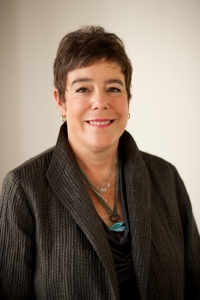 Hon. Ann Aiken
Chief Judge, United States District Court of Oregon
When facing the alarming recidivism rate for prisoners who have served their time, many policymakers shrug their shoulders or politely avert their gazes. But for Judge Ann Aiken, the rate of re-incarceration is data, and it is alarming – a large number of those inmates are in prison for parole violations, many involving drugs. Judge Aiken has worked with her fellow Fastcase 50 classmate Dan Lear (see below) on apps to help those on supervised release stay on the right side of the law. She has suggested apps, dashboards, and Fitbits for justice, wearables that help people find medical help, connect with probation officers, or find support by cell phone. Judge Aiken’s approach, equal parts technology and social science, promises to help understand, quantify, and lower the rate of recidivism.
Hon. Ann Aiken
Chief Judge, United States District Court of Oregon
When facing the alarming recidivism rate for prisoners who have served their time, many policymakers shrug their shoulders or politely avert their gazes. But for Judge Ann Aiken, the rate of re-incarceration is data, and it is alarming – a large number of those inmates are in prison for parole violations, many involving drugs. Judge Aiken has worked with her fellow Fastcase 50 classmate Dan Lear (see below) on apps to help those on supervised release stay on the right side of the law. She has suggested apps, dashboards, and Fitbits for justice, wearables that help people find medical help, connect with probation officers, or find support by cell phone. Judge Aiken’s approach, equal parts technology and social science, promises to help understand, quantify, and lower the rate of recidivism.
 Michelle Alexander
Author; Associate Professor of Law, Ohio State University
A prominent civil rights advocate and law professor who formerly clerked for Justice Blackmun, Michelle penned her first book, The New Jim Crow, in 2010 after receiving a Soros Justice Fellowship. The book was a Washington Post and New York Times bestseller, advancing the conversation about systemic racism and the criminal justice system. Michelle continues to be one of the most prominent American voices on race and justice, frequently appearing on national television and radio programs such as Bill Moyers, Fresh Air, and the Colbert Report.
Michelle Alexander
Author; Associate Professor of Law, Ohio State University
A prominent civil rights advocate and law professor who formerly clerked for Justice Blackmun, Michelle penned her first book, The New Jim Crow, in 2010 after receiving a Soros Justice Fellowship. The book was a Washington Post and New York Times bestseller, advancing the conversation about systemic racism and the criminal justice system. Michelle continues to be one of the most prominent American voices on race and justice, frequently appearing on national television and radio programs such as Bill Moyers, Fresh Air, and the Colbert Report.
 Pablo Arredondo
Vice President of Legal Research, Casetext
Pablo Arredondo is like a mad scientist of legal research. So many good ideas pour out of Pablo, one would need an army of software developers and data scientists to follow up on them. Happily, Pablo now works with Casetext, bringing many of those good ideas to life. Before assuming his role as the Vice President of Legal Research at Casetext, Pablo spent his time litigating patents and founding the legal research technology start-up Occam (as in the razor). When he is not powering Casetext, Pablo is an entrepreneurial fellow at the Stanford Center for Legal Informatics, where he focuses on how civil litigators access and assemble the law using informatics and automation.
Pablo Arredondo
Vice President of Legal Research, Casetext
Pablo Arredondo is like a mad scientist of legal research. So many good ideas pour out of Pablo, one would need an army of software developers and data scientists to follow up on them. Happily, Pablo now works with Casetext, bringing many of those good ideas to life. Before assuming his role as the Vice President of Legal Research at Casetext, Pablo spent his time litigating patents and founding the legal research technology start-up Occam (as in the razor). When he is not powering Casetext, Pablo is an entrepreneurial fellow at the Stanford Center for Legal Informatics, where he focuses on how civil litigators access and assemble the law using informatics and automation.
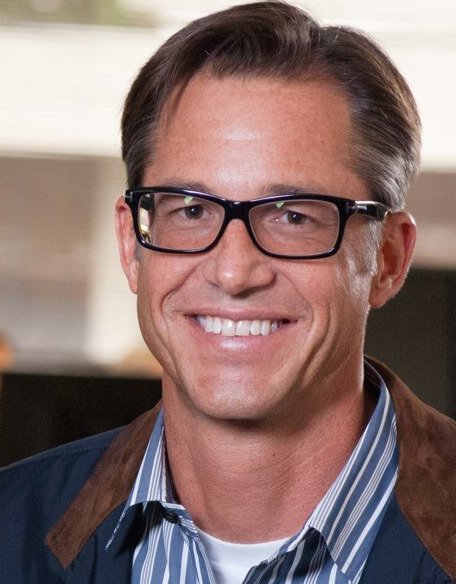 Rich Barton
Founder of Expedia; Co-Founder of Zillow, Glassdoor
Maybe you don’t know Rich Barton, but you definitely know his ideas, which include Expedia, Zillow, and Glassdoor. In 2014 he was recognized by President Obama when he was named a Presidential Ambassador for Global Entrepreneurship. However, the reach of Rich’s influence stretches beyond the pale of tech start-ups and prestigious accolades. This includes founding the philanthropic Barton Family Foundation and investing in a number of small companies that focus on making authentic information more accessible to more consumers, thereby protecting their interests.
Rich Barton
Founder of Expedia; Co-Founder of Zillow, Glassdoor
Maybe you don’t know Rich Barton, but you definitely know his ideas, which include Expedia, Zillow, and Glassdoor. In 2014 he was recognized by President Obama when he was named a Presidential Ambassador for Global Entrepreneurship. However, the reach of Rich’s influence stretches beyond the pale of tech start-ups and prestigious accolades. This includes founding the philanthropic Barton Family Foundation and investing in a number of small companies that focus on making authentic information more accessible to more consumers, thereby protecting their interests.
 Howard Bashman
Appellate lawyer; Author, How Appealing blog
In Bashman news… Howard Bashman is the prolific author of the long-running appellate blog “How Appealing,” a daily must-read for the appellate practitioner who wants to cover all of the bases. You know a story has made it to the big leagues when it's linked to in one of Howard’s frequent, streamlined posts. In addition to “How Appealing,” Howard writes a monthly column for The Legal Intelligencer, where he provides insight (dare we say “inside baseball”) on the Pennsylvania and Third Circuit courts and other appellate news. Lest you think Howard is all business all the time, he also posts box scores for his beloved Phillies (he should win the award simply for sticking with them this season) as well as the occasional story out of left field about “bash man” news in which some poor soul is inevitably bashed by an object. We can't wait to see what's on deck next for Howard.
Howard Bashman
Appellate lawyer; Author, How Appealing blog
In Bashman news… Howard Bashman is the prolific author of the long-running appellate blog “How Appealing,” a daily must-read for the appellate practitioner who wants to cover all of the bases. You know a story has made it to the big leagues when it's linked to in one of Howard’s frequent, streamlined posts. In addition to “How Appealing,” Howard writes a monthly column for The Legal Intelligencer, where he provides insight (dare we say “inside baseball”) on the Pennsylvania and Third Circuit courts and other appellate news. Lest you think Howard is all business all the time, he also posts box scores for his beloved Phillies (he should win the award simply for sticking with them this season) as well as the occasional story out of left field about “bash man” news in which some poor soul is inevitably bashed by an object. We can't wait to see what's on deck next for Howard.
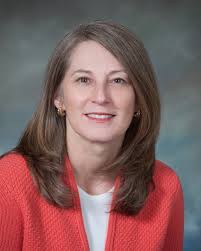 Laura Calloway
Director, Practice Management Assistance Program at Alabama State Bar
Put simply, Laura Calloway helps lawyers work smarter and more ethically for their clients. As the director of the Alabama State Bar’s Practice Management Assistance Program, Laura manages a massive lending library of multimedia educational materials and distributes free informational packets to lawyers across the state. Laura has led the way in educating attorneys on safely using cloud-based technologies in a small office setting and is a national leader in law office technology.
Laura Calloway
Director, Practice Management Assistance Program at Alabama State Bar
Put simply, Laura Calloway helps lawyers work smarter and more ethically for their clients. As the director of the Alabama State Bar’s Practice Management Assistance Program, Laura manages a massive lending library of multimedia educational materials and distributes free informational packets to lawyers across the state. Laura has led the way in educating attorneys on safely using cloud-based technologies in a small office setting and is a national leader in law office technology.
 Jeena Cho
Partner at JC Law Group PC; Author; Mindfulness Instructor
“Being a lawyer should not be full of misery and pain.” Sometimes (most of the time) lawyers need to take a step back and breathe. Jeena Cho is dedicated to teaching attorneys about the benefits of fostering an everyday meditation practice, managing stress, and finding a better work-life balance. A partner at the JC Law Group PC and an adjunct professor at the University of San Francisco School of Law, Jeena began her foray into mindfulness at the Himalayan Institute and has since trained participants on mindfulness at large law firms and conferences across the country. Her podcast, The Resilient Lawyer, is a weekly conversation with some of the most balanced professionals in the field. Jeena is currently working on a new ABA book titled The Anxious Lawyer with yoga and mindfulness consultant Karen Gifford.
Jeena Cho
Partner at JC Law Group PC; Author; Mindfulness Instructor
“Being a lawyer should not be full of misery and pain.” Sometimes (most of the time) lawyers need to take a step back and breathe. Jeena Cho is dedicated to teaching attorneys about the benefits of fostering an everyday meditation practice, managing stress, and finding a better work-life balance. A partner at the JC Law Group PC and an adjunct professor at the University of San Francisco School of Law, Jeena began her foray into mindfulness at the Himalayan Institute and has since trained participants on mindfulness at large law firms and conferences across the country. Her podcast, The Resilient Lawyer, is a weekly conversation with some of the most balanced professionals in the field. Jeena is currently working on a new ABA book titled The Anxious Lawyer with yoga and mindfulness consultant Karen Gifford.
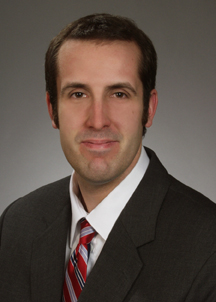 Jared Correia
Assistant Director and Senior Law Practice Advisor at LOMAP
Jared Correia serves as the Assistant Director and Senior Law Practice Advisor at the Massachusetts Law Office Management Assistance Program, where he helps lawyers across the state develop and improve professional office habits that lead to stronger client relationships. He also organizes the LOMAP Super Marketing conference. But his influence extends far beyond the Bay State. Jared is also a regular contributor at Attorney at Work and has written the foundational ABA guide Twitter in One Hour for Lawyers. Jared also co-hosts the Legal Toolkit and Lunch Hour Legal Marketing podcasts on Legal Talk Network. Sometimes these topics can be quite dry – but Jared always seems to find the humor in them to the benefit of all of his friends and listeners. And if you ever want to know what your alt-rock spirit animal is, Jared can usually help you identify it.
Jared Correia
Assistant Director and Senior Law Practice Advisor at LOMAP
Jared Correia serves as the Assistant Director and Senior Law Practice Advisor at the Massachusetts Law Office Management Assistance Program, where he helps lawyers across the state develop and improve professional office habits that lead to stronger client relationships. He also organizes the LOMAP Super Marketing conference. But his influence extends far beyond the Bay State. Jared is also a regular contributor at Attorney at Work and has written the foundational ABA guide Twitter in One Hour for Lawyers. Jared also co-hosts the Legal Toolkit and Lunch Hour Legal Marketing podcasts on Legal Talk Network. Sometimes these topics can be quite dry – but Jared always seems to find the humor in them to the benefit of all of his friends and listeners. And if you ever want to know what your alt-rock spirit animal is, Jared can usually help you identify it.
 Scott Forman
Shareholder, Littler Mendelson; Founder of Littler CaseSmart
Scott Forman
Shareholder, Littler Mendelson; Founder of Littler CaseSmart
If you’d like to understand the future of innovation at large law firms, you might want to look over Scott Forman’s shoulder. Both a shareholder and member of the Board of Directors at Littler, one of the largest employment law firms in the world, Scott introduced the award-winning CaseSmart – a case management platform that helps the entire Littler universe stay on top of organizational risk and serve clients more effectively. Among many other things, CaseSmart provides clients with greater transparency in the form of an interactive dashboard. It’s no surprise, then, that Scott is the co-chair of the firm’s Innovation Council. Scott’s latest creation is Virtual Binder, a project management platform that encourages collaboration between attorneys by simultaneously informing an entire case team of who needs to perform each task, and when, during each stage of litigation.
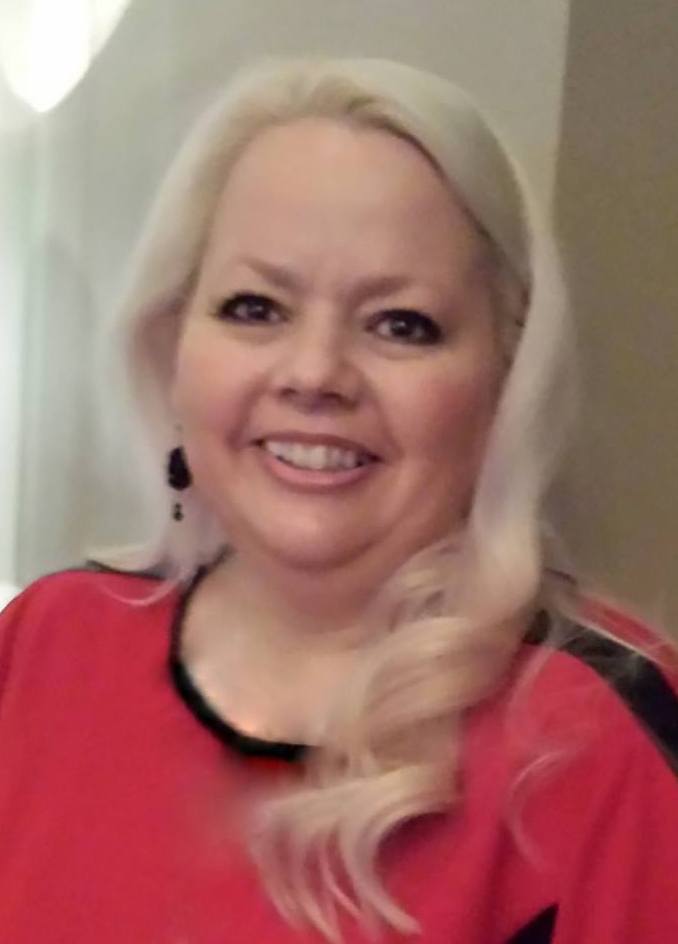 JoAnna Forshee
CEO, InsideLegal.com and Envision Agency
A serial entrepreneur, JoAnna Forshee started Envision Agency 14 years ago to help legal technology companies navigate the legal market. When she recognized a gap in information between legal technology providers and legal professionals, she created InsideLegal.com to serve as an online community and blog for legal pros about doing business in the legal technology marketplace. You may not see her in the front of the room, but for many years, she has worked behind the scenes to help produce events like LexThink, ABA Techshow, and the International Legal Technology Association (ILTA) Conference.
JoAnna Forshee
CEO, InsideLegal.com and Envision Agency
A serial entrepreneur, JoAnna Forshee started Envision Agency 14 years ago to help legal technology companies navigate the legal market. When she recognized a gap in information between legal technology providers and legal professionals, she created InsideLegal.com to serve as an online community and blog for legal pros about doing business in the legal technology marketplace. You may not see her in the front of the room, but for many years, she has worked behind the scenes to help produce events like LexThink, ABA Techshow, and the International Legal Technology Association (ILTA) Conference.
 Abe Geiger
Founder and CEO, Shake
There are many routine parts of law waiting to be streamlined with software, and simple contracts are particularly overdue for some love from software developers. Enter Shake. Abe Geiger is the Founder and CEO of Shake, a platform that allows users to create, sign, and send legally binding agreements from their smartphones. The company’s app combines the simplicity and convenience of a handshake with the protection of a legal agreement. The product is dead simple (in a good way): select an agreement from Shake’s template library, sign the contract on your smartphone or tablet, send to other parties for signature. Boom. (That wasn’t hard, was it?) Abe and Shake are great examples of entrepreneurs using software to reduce friction and transactions costs from law, for the benefit of consumers.
Abe Geiger
Founder and CEO, Shake
There are many routine parts of law waiting to be streamlined with software, and simple contracts are particularly overdue for some love from software developers. Enter Shake. Abe Geiger is the Founder and CEO of Shake, a platform that allows users to create, sign, and send legally binding agreements from their smartphones. The company’s app combines the simplicity and convenience of a handshake with the protection of a legal agreement. The product is dead simple (in a good way): select an agreement from Shake’s template library, sign the contract on your smartphone or tablet, send to other parties for signature. Boom. (That wasn’t hard, was it?) Abe and Shake are great examples of entrepreneurs using software to reduce friction and transactions costs from law, for the benefit of consumers.
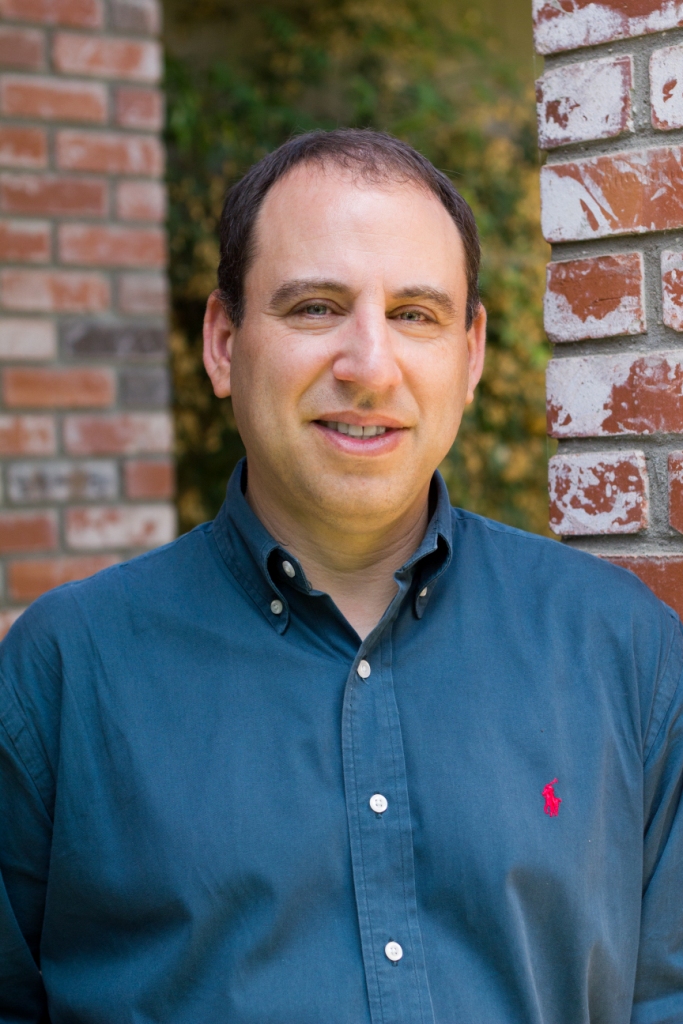 Eric Goldman
Co-Director, High Tech Law Institute;Professor, Santa Clara University School of Law;Blogger, Forbes’ Tertium Quid Blog and Technology & Marketing Law Blog
For the past two decades, Professor Eric Goldman has been an authority on Internet Law, as a firm practitioner, in-house counsel, and as a law professor. He’s chronicled issues in intellectual property and Internet law on his Technology & Marketing Law Blog and the Tertium Quid Blog at Forbes. Eric had a dream of making a home for Internet Law scholars, and in 2004 he and Dan Hunter co-founded the Internet Law Works-in-Progress conference, which brings together Internet legal scholars from around the world to get early peer feedback on their in-progress research.
Eric Goldman
Co-Director, High Tech Law Institute;Professor, Santa Clara University School of Law;Blogger, Forbes’ Tertium Quid Blog and Technology & Marketing Law Blog
For the past two decades, Professor Eric Goldman has been an authority on Internet Law, as a firm practitioner, in-house counsel, and as a law professor. He’s chronicled issues in intellectual property and Internet law on his Technology & Marketing Law Blog and the Tertium Quid Blog at Forbes. Eric had a dream of making a home for Internet Law scholars, and in 2004 he and Dan Hunter co-founded the Internet Law Works-in-Progress conference, which brings together Internet legal scholars from around the world to get early peer feedback on their in-progress research.
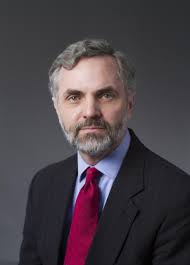 Oliver Goodenough
Director, Center for Legal Innovation and Professor of Law, Vermont Law School; Faculty fellow, The Berkman Center for Internet and Society at Harvard University
Law is changing. Clients’ expectations are changing. And legal tech is changing. But, for the most part, law schools are not. To meet these challenges, Oliver Goodenough is pioneering a new way of training the next generation of lawyers, combining his multivariate expertise in neuroscience, law, economics, finance, media and technology. Oliver is a pioneer in Neurolaw, an authority in the impact of digital technology, and an advocate for improving innovation and entrepreneurship in the legal community. He is the organizer of more than 40 workshops and conferences about the law, and he has presented at more than 100 conferences around the world.
Oliver Goodenough
Director, Center for Legal Innovation and Professor of Law, Vermont Law School; Faculty fellow, The Berkman Center for Internet and Society at Harvard University
Law is changing. Clients’ expectations are changing. And legal tech is changing. But, for the most part, law schools are not. To meet these challenges, Oliver Goodenough is pioneering a new way of training the next generation of lawyers, combining his multivariate expertise in neuroscience, law, economics, finance, media and technology. Oliver is a pioneer in Neurolaw, an authority in the impact of digital technology, and an advocate for improving innovation and entrepreneurship in the legal community. He is the organizer of more than 40 workshops and conferences about the law, and he has presented at more than 100 conferences around the world.
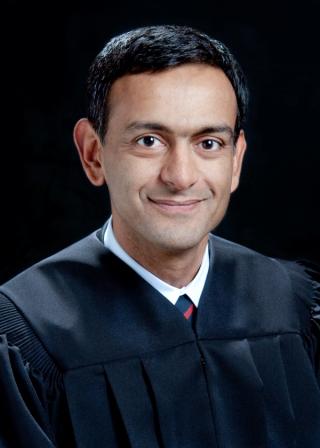 Hon. Paul Grewal
United States Magistrate Judge for Northern District of California
Judge Paul Grewal is the tech judge for the techiest federal district court in America. When the titans of Silicon Valley go to trial, the issues deal as much with tech issues as legal ones. And when those cases get to court (think Apple v. Samsung), the court can refer them to Judge Grewal, an IP lawyer who got his undergraduate degree from MIT and who clerked on the Federal Circuit before practicing as an intellectual property lawyer. Much of the future of tech will be litigated, and mostly in the Northern District of California – and many of those cases will go through Judge Grewal. The judge also joins (Class of 2014 Fastcase 50 winners) Judge Don Willett and Judge Stephen Dillard as one of the funniest judges on Twitter, and he gets bonus points for delivering a lecture on Tatooine Law at San Diego Comic Con this summer.
Hon. Paul Grewal
United States Magistrate Judge for Northern District of California
Judge Paul Grewal is the tech judge for the techiest federal district court in America. When the titans of Silicon Valley go to trial, the issues deal as much with tech issues as legal ones. And when those cases get to court (think Apple v. Samsung), the court can refer them to Judge Grewal, an IP lawyer who got his undergraduate degree from MIT and who clerked on the Federal Circuit before practicing as an intellectual property lawyer. Much of the future of tech will be litigated, and mostly in the Northern District of California – and many of those cases will go through Judge Grewal. The judge also joins (Class of 2014 Fastcase 50 winners) Judge Don Willett and Judge Stephen Dillard as one of the funniest judges on Twitter, and he gets bonus points for delivering a lecture on Tatooine Law at San Diego Comic Con this summer.
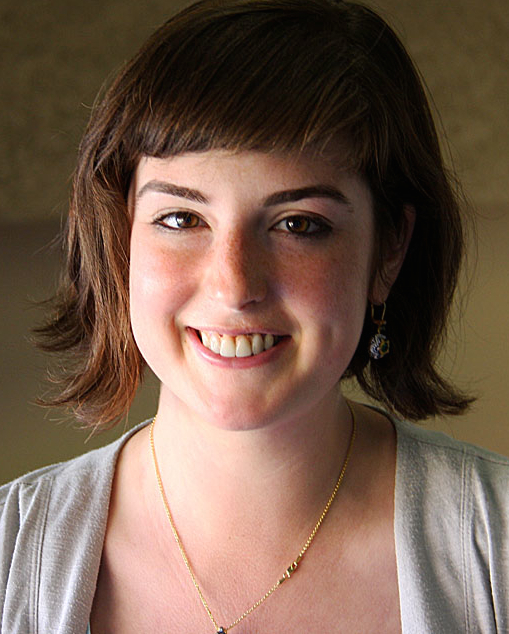 Margaret Hagan
Fellow at the Center on the Legal Profession; Lecturer at the Stanford Institute of Design
Margaret Hagan has pioneered the use of design thinking as a way to make the law more accessible and understandable. As a law student at Stanford, she created a game app called “Law Dojo” to help students study more effectively. After graduating, she served jointly as a fellow at Stanford Law’s Center on the Legal Profession and a lecturer at Stanford Institute of Design (the d.school), where she spearheaded the innovative Program for Legal Tech & Design. In keeping one foot in the world of law, and one foot in the world of design, Margaret and the Program explore how the aesthetic and functional principles of design could improve the delivery of legal services.
Margaret Hagan
Fellow at the Center on the Legal Profession; Lecturer at the Stanford Institute of Design
Margaret Hagan has pioneered the use of design thinking as a way to make the law more accessible and understandable. As a law student at Stanford, she created a game app called “Law Dojo” to help students study more effectively. After graduating, she served jointly as a fellow at Stanford Law’s Center on the Legal Profession and a lecturer at Stanford Institute of Design (the d.school), where she spearheaded the innovative Program for Legal Tech & Design. In keeping one foot in the world of law, and one foot in the world of design, Margaret and the Program explore how the aesthetic and functional principles of design could improve the delivery of legal services.
 Rubsun Ho
Co-founder and Partner, Cognition LLP
The story is familiar – young lawyers suffering with the long hours and stress of a traditional law firm. What happened next is different: Cognition LLP co-founders Joe Milstone and Rubsun Ho decided to try lowering the billing pressure of their old law firms by starting their own firm. Cognition’s legal team works remotely, or in-house with clients, and diminishes the typical firm overhead expense while providing real-time “Value Based Billing” that allows clients to adjust their invoices to reflect the service received. That allows the firm to work at rates that emerging businesses can afford. The approach is paying off. Cognition has grown to 40 lawyers, and it is leading a “New Law” revolution in Canada. Cognition has been recognized as one of Canada's top 10 Most Admired Corporate Cultures, and the firm has been named to the PROFIT 500 ranking of Canada's Fastest-Growing Companies for the last three years.
Rubsun Ho
Co-founder and Partner, Cognition LLP
The story is familiar – young lawyers suffering with the long hours and stress of a traditional law firm. What happened next is different: Cognition LLP co-founders Joe Milstone and Rubsun Ho decided to try lowering the billing pressure of their old law firms by starting their own firm. Cognition’s legal team works remotely, or in-house with clients, and diminishes the typical firm overhead expense while providing real-time “Value Based Billing” that allows clients to adjust their invoices to reflect the service received. That allows the firm to work at rates that emerging businesses can afford. The approach is paying off. Cognition has grown to 40 lawyers, and it is leading a “New Law” revolution in Canada. Cognition has been recognized as one of Canada's top 10 Most Admired Corporate Cultures, and the firm has been named to the PROFIT 500 ranking of Canada's Fastest-Growing Companies for the last three years.
 Nick Holmes
Managing Director, Infolaw
Nick Holmes is a pioneer of online legal research in the UK. The original version of his site, Infolaw, was the first UK legal resource available online to the public. For over two decades since, his enthusiasm and expertise with regard to legal information have cast him in high relief in both the legal and technology fields. A devout advocate of access to justice, Nick’s work transformed legal research within the UK at the onset of the Web – and continues to do so today.
Nick Holmes
Managing Director, Infolaw
Nick Holmes is a pioneer of online legal research in the UK. The original version of his site, Infolaw, was the first UK legal resource available online to the public. For over two decades since, his enthusiasm and expertise with regard to legal information have cast him in high relief in both the legal and technology fields. A devout advocate of access to justice, Nick’s work transformed legal research within the UK at the onset of the Web – and continues to do so today.
 William C. Hubbard
President, American Bar Association
There is a critical mismatch in the law, with vast unmet demand for legal services co-existing in a market where 20,000 law school graduates cannot find legal employment. As ABA President, William Hubbard has united the legal, technology, academic, and business communities in an effort to remedy this market failure and improve the delivery of legal services to the most underserved populations in the United States. As part of this effort, he convened a National Summit on Innovation in Legal Services at Stanford Law School and started the ABA Commission on the Future of Legal Services.
William C. Hubbard
President, American Bar Association
There is a critical mismatch in the law, with vast unmet demand for legal services co-existing in a market where 20,000 law school graduates cannot find legal employment. As ABA President, William Hubbard has united the legal, technology, academic, and business communities in an effort to remedy this market failure and improve the delivery of legal services to the most underserved populations in the United States. As part of this effort, he convened a National Summit on Innovation in Legal Services at Stanford Law School and started the ABA Commission on the Future of Legal Services.
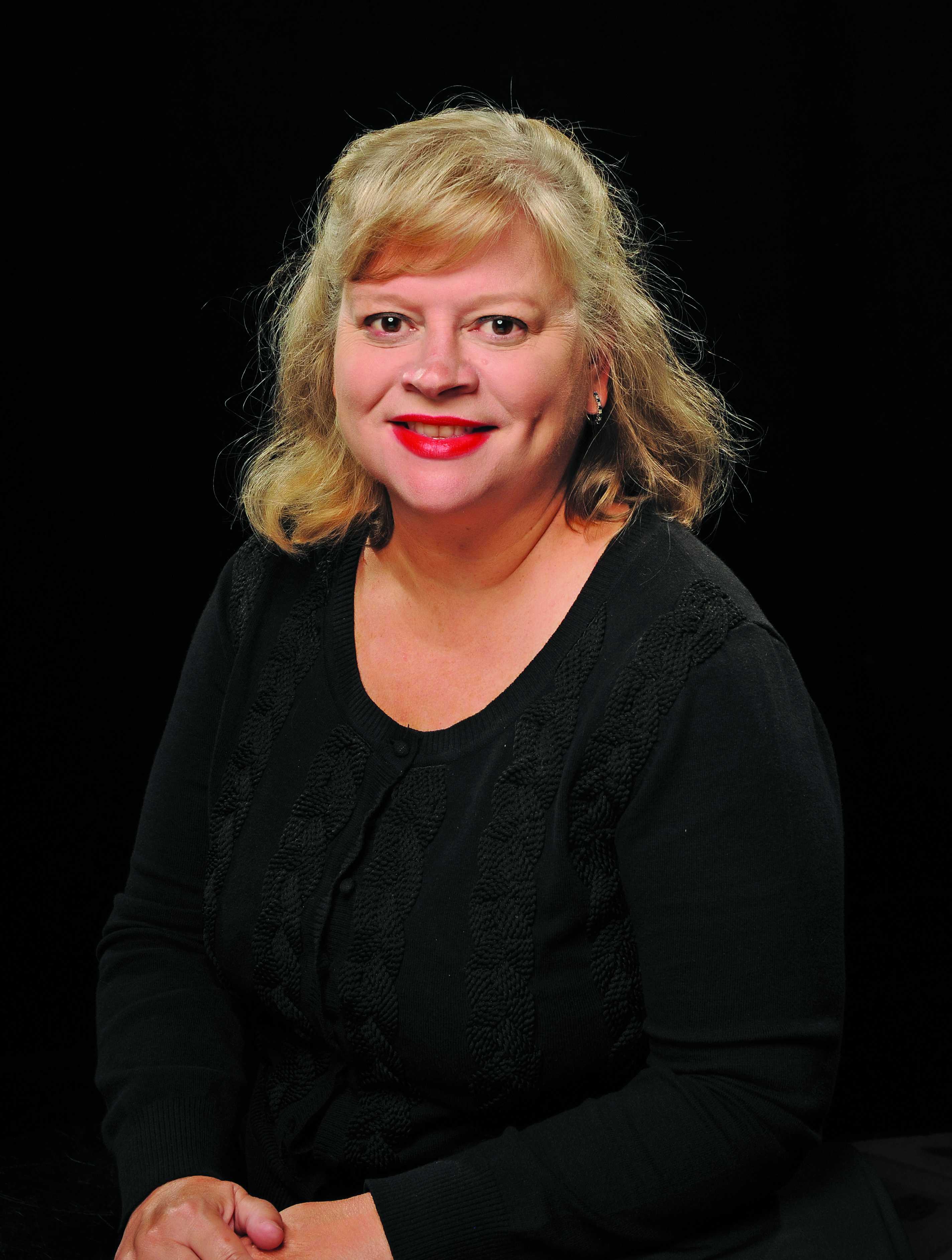 Michelle Hunter
Executive Director of the State Bar of Texas
Michelle Hunter presides over one of the largest bars in the nation and has made it a dynamo. Since Hunter took the helm in October 2008, the State Bar has revitalized its host of offerings and programs, created a very impressive array of live and online CLE options through TexasBarCLE, grown the Texas Lawyers’ Assistance Program to help member attorneys dealing with personal issues, launched the Texas Bar Private Insurance Exchange in 2013, created programs to help veterans in need, enhanced civil education in Texas, greatly expanded its efforts to promote pro bono work and foster access to justice, and much more, all the while making the State Bar extremely financially solid and building a very impressive staff.
Michelle Hunter
Executive Director of the State Bar of Texas
Michelle Hunter presides over one of the largest bars in the nation and has made it a dynamo. Since Hunter took the helm in October 2008, the State Bar has revitalized its host of offerings and programs, created a very impressive array of live and online CLE options through TexasBarCLE, grown the Texas Lawyers’ Assistance Program to help member attorneys dealing with personal issues, launched the Texas Bar Private Insurance Exchange in 2013, created programs to help veterans in need, enhanced civil education in Texas, greatly expanded its efforts to promote pro bono work and foster access to justice, and much more, all the while making the State Bar extremely financially solid and building a very impressive staff.
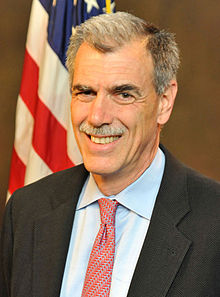 Donald Verrilli, Jr.
Solicitor General of the United States
It is possible to imagine advocates that have had a better year, but very difficult: Donald Verrilli had a superlative term before the Supreme Court this year. Although no Solicitor General can be expected to win every case, Donald scored major victories upholding key provisions of the Affordable Care Act (nee Obamacare) in King v. Burwell, and marriage equality in Obergefell v. Hodges this term. Donald is not a showy advocate; he does not grandstand. He is a calm and considered advocate who really and truly understands the Justices of the Supreme Court. And no wonder – Donald previously served as Deputy Counsel to President Barack Obama, and he co-chaired Jenner & Block’s Supreme Court practice group. By the time he was appointed to succeed Justice Elena Kagan as Solicitor General, Donald had participated in more than 100 Supreme Court cases, 17 of which he argued.
Donald Verrilli, Jr.
Solicitor General of the United States
It is possible to imagine advocates that have had a better year, but very difficult: Donald Verrilli had a superlative term before the Supreme Court this year. Although no Solicitor General can be expected to win every case, Donald scored major victories upholding key provisions of the Affordable Care Act (nee Obamacare) in King v. Burwell, and marriage equality in Obergefell v. Hodges this term. Donald is not a showy advocate; he does not grandstand. He is a calm and considered advocate who really and truly understands the Justices of the Supreme Court. And no wonder – Donald previously served as Deputy Counsel to President Barack Obama, and he co-chaired Jenner & Block’s Supreme Court practice group. By the time he was appointed to succeed Justice Elena Kagan as Solicitor General, Donald had participated in more than 100 Supreme Court cases, 17 of which he argued.
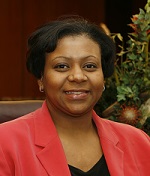 Natalie Kelly
Director, Law Practice Management Program, The State Bar of Georgia
Law Practice Management advisors need to know a little of everything: from software advice to payroll processing, from trust accounting to filing systems. Natalie Kelly has served as the guide to many lawyers in her role as the Practice Management Advisor to the State Bar of Georgia, as well as through the American Bar Association’s College of Law Practice Management and Solo and Small Firm Division. She has served on the planning committee for ABA Techshow and been a part of just about every legal conference you’ve ever heard of. And did we mention that she’s done all this while simultaneously serving as an adjunct professor at Atlanta’s John Marshall Law School and completing her J.D. there at the same time?
Natalie Kelly
Director, Law Practice Management Program, The State Bar of Georgia
Law Practice Management advisors need to know a little of everything: from software advice to payroll processing, from trust accounting to filing systems. Natalie Kelly has served as the guide to many lawyers in her role as the Practice Management Advisor to the State Bar of Georgia, as well as through the American Bar Association’s College of Law Practice Management and Solo and Small Firm Division. She has served on the planning committee for ABA Techshow and been a part of just about every legal conference you’ve ever heard of. And did we mention that she’s done all this while simultaneously serving as an adjunct professor at Atlanta’s John Marshall Law School and completing her J.D. there at the same time?
 Sheldon Krantz
Author; Senior Fellow, Georgetown Center for the Study of the Legal Profession; Executive Director of The DC Affordable Law Firm
Sheldon Krantz has seen pro bono work from every angle – as a lawyer, a law professor, and as an entrepreneur. As a partner at DLA Piper for nearly 20 years, Sheldon was named the D.C. Pro Bono Lawyer of the Year, and he created New Perimeter, DLA Piper's nonprofit pro bono affiliate. He literally wrote the book on how to reinvent law: The Legal Profession: What is Wrong and How to Fix It. And starting this fall, he will serve as the Executive Director to the newly created D.C. Affordable Law Firm, a joint endeavor between the Georgetown University Law Center, Arent Fox, and DLA Piper, to address the needs of the underserved in the DC area.
Sheldon Krantz
Author; Senior Fellow, Georgetown Center for the Study of the Legal Profession; Executive Director of The DC Affordable Law Firm
Sheldon Krantz has seen pro bono work from every angle – as a lawyer, a law professor, and as an entrepreneur. As a partner at DLA Piper for nearly 20 years, Sheldon was named the D.C. Pro Bono Lawyer of the Year, and he created New Perimeter, DLA Piper's nonprofit pro bono affiliate. He literally wrote the book on how to reinvent law: The Legal Profession: What is Wrong and How to Fix It. And starting this fall, he will serve as the Executive Director to the newly created D.C. Affordable Law Firm, a joint endeavor between the Georgetown University Law Center, Arent Fox, and DLA Piper, to address the needs of the underserved in the DC area.
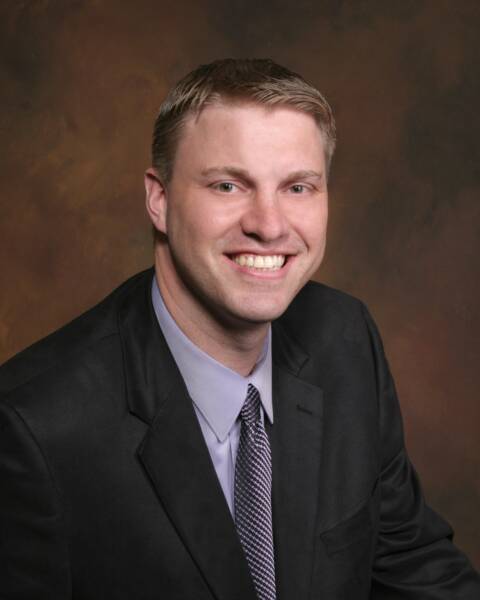 Dan LaBert
Executive Director of the National Association of Consumer Bankruptcy Attorneys (NACBA)
Bankruptcy law is a tough specialty – people are struggling, and new federal law makes it harder than ever to reorganize debts. Bankruptcy filings, which have already declined over the last five years, are down another 12% as of Q1 2015. That’s why it’s more important than ever to have an organization whose mission is to protect the rights of struggling families, to advocate for better laws, and to bring members together for a stronger debtors’ bar. That organization is NACBA, and with its more than 4,000 members in all 50 states, its Executive Director Dan LaBert has been driving to make the association the leading voice in America on consumer bankruptcy law.
Dan LaBert
Executive Director of the National Association of Consumer Bankruptcy Attorneys (NACBA)
Bankruptcy law is a tough specialty – people are struggling, and new federal law makes it harder than ever to reorganize debts. Bankruptcy filings, which have already declined over the last five years, are down another 12% as of Q1 2015. That’s why it’s more important than ever to have an organization whose mission is to protect the rights of struggling families, to advocate for better laws, and to bring members together for a stronger debtors’ bar. That organization is NACBA, and with its more than 4,000 members in all 50 states, its Executive Director Dan LaBert has been driving to make the association the leading voice in America on consumer bankruptcy law.
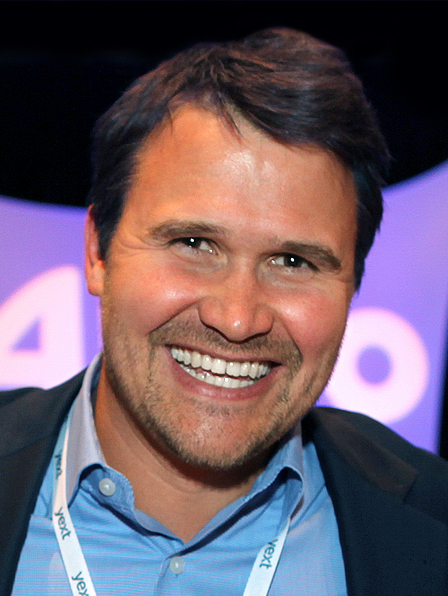 Dan Lear
Director of Industry Relations, Avvo
Dan Lear is a community evangelist for Avvo and an unbridled enthusiast for the power of legal tech. Dan is the co-founder of the Seattle Legal Technology and Innovation MeetUp, a group dedicated to solving complex legal problems with clever software solutions. He served on the Washington State Bar Association’s Working Group on the Future of the Legal Profession and has worked for two different lean, “NewLaw” firms. Dan’s call is as simple as the title of his Reinvent Law talk last year: We Need More Legal Hackers Now.
Dan Lear
Director of Industry Relations, Avvo
Dan Lear is a community evangelist for Avvo and an unbridled enthusiast for the power of legal tech. Dan is the co-founder of the Seattle Legal Technology and Innovation MeetUp, a group dedicated to solving complex legal problems with clever software solutions. He served on the Washington State Bar Association’s Working Group on the Future of the Legal Profession and has worked for two different lean, “NewLaw” firms. Dan’s call is as simple as the title of his Reinvent Law talk last year: We Need More Legal Hackers Now.
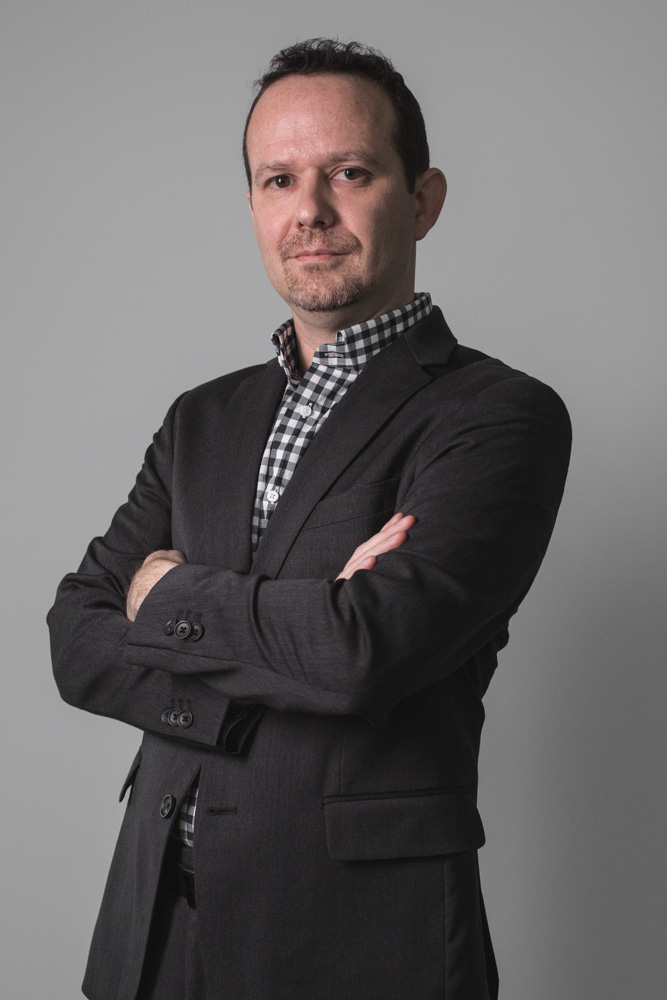 Joshua Lenon
Lawyer-in-Residence at Clio
Clio is the fastest-growing practice management software in North America. Joshua Lenon is an advocate, a liaison for lawyers inside the software company, and an ambassador for cloud computing and ethical lawyering to the rest of the world. Joshua is a frequent lecturer around the country, and not just about Clio, but about topics like ethics and legal research, and robots in law firms. As Clio has grown, Joshua has worked on many of its successes, both as a lawyer and as a businessperson, from social media to business development and negotiation. He also is a trained sailor, which may be why he is so versatile and can work so many stations on the ship.
Joshua Lenon
Lawyer-in-Residence at Clio
Clio is the fastest-growing practice management software in North America. Joshua Lenon is an advocate, a liaison for lawyers inside the software company, and an ambassador for cloud computing and ethical lawyering to the rest of the world. Joshua is a frequent lecturer around the country, and not just about Clio, but about topics like ethics and legal research, and robots in law firms. As Clio has grown, Joshua has worked on many of its successes, both as a lawyer and as a businessperson, from social media to business development and negotiation. He also is a trained sailor, which may be why he is so versatile and can work so many stations on the ship.
 Daniel Linna
Assistant Dean of Career Development & Professor of Law in Residence, Michigan State College of Law; Adjunct Professor, University of Michigan Law
“There is a science behind beauty. There is a science behind persuasion. Scientific methods can be used – and should be used – to improve legal practice.” Dan Linna was an IT manager before law school, and he found that the supply chain and project management skills he learned in business were of great service to his clients in private practice. Now Dan teaches law students at Michigan State Law and Michigan Law about how to augment the practice of law with the science of law. Game theory, decision science, and data analysis don’t replace lawyering, Dan teaches, but science makes lawyers better.
Daniel Linna
Assistant Dean of Career Development & Professor of Law in Residence, Michigan State College of Law; Adjunct Professor, University of Michigan Law
“There is a science behind beauty. There is a science behind persuasion. Scientific methods can be used – and should be used – to improve legal practice.” Dan Linna was an IT manager before law school, and he found that the supply chain and project management skills he learned in business were of great service to his clients in private practice. Now Dan teaches law students at Michigan State Law and Michigan Law about how to augment the practice of law with the science of law. Game theory, decision science, and data analysis don’t replace lawyering, Dan teaches, but science makes lawyers better.
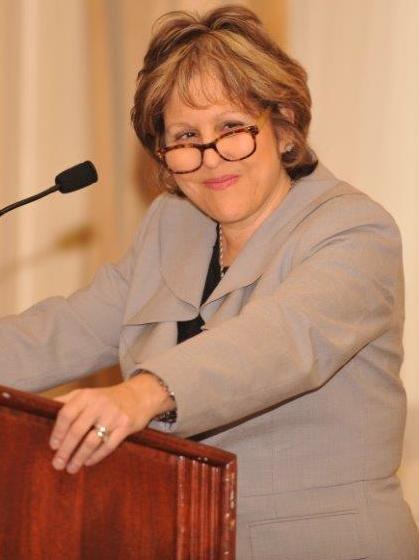 Lisa Linsky
Partner-in-Charge of Firm-wide Diversity and Partner-in-Charge of LGBT Diversity and Inclusion, McDermott, Will & Emery
Lisa Linsky has a 30-year history of advocating for diversity and inclusion, first as a special prosecutor dealing with child abuse and domestic violence cases, then as a litigator at McDermott, Will & Emery. Linsky has worked to promote diversity within her law firm, but she also has been an advocate for marriage equality everywhere, including filing an amicus brief in the Supreme Court’s Obergefell v. Hodges case. She is active in many bar associations, including Lambda Legal, the New York City LGBT Community Center, the National Association of Women Lawyers, the NYC Bar Association, and the New York State Bar Association.
Lisa Linsky
Partner-in-Charge of Firm-wide Diversity and Partner-in-Charge of LGBT Diversity and Inclusion, McDermott, Will & Emery
Lisa Linsky has a 30-year history of advocating for diversity and inclusion, first as a special prosecutor dealing with child abuse and domestic violence cases, then as a litigator at McDermott, Will & Emery. Linsky has worked to promote diversity within her law firm, but she also has been an advocate for marriage equality everywhere, including filing an amicus brief in the Supreme Court’s Obergefell v. Hodges case. She is active in many bar associations, including Lambda Legal, the New York City LGBT Community Center, the National Association of Women Lawyers, the NYC Bar Association, and the New York State Bar Association.
 Hon. Goodwin Liu
Associate Justice, California Supreme Court
California Supreme Court Justice Goodwin Liu is one of the most accomplished lawyers of his generation. After attending Stanford, Oxford as a Rhodes Scholar, and Yale Law School, Justice Liu served as a judicial clerk to Justice Ruth Bader Ginsburg. He was an appellate litigator, then one of the most popular law professors at, the University of California, Berkeley (Boalt Hall), where he became Associate Dean. President Obama nominated him to fill a vacancy on the U.S. Court of Appeals for the Ninth Circuit, but his nomination was filibustered in the Senate. No matter – days after he withdrew his nomination, California Gov. Jerry Brown contacted Liu to fill a vacancy on the California Supreme Court left by Justice Carlos Moreno. According to the L.A. Times, Gov. Brown said that “he saw in Liu a successor to the late, legendary Justice Roger Traynor, who developed enduring legal principles during his 30 years on the state high court.”
Hon. Goodwin Liu
Associate Justice, California Supreme Court
California Supreme Court Justice Goodwin Liu is one of the most accomplished lawyers of his generation. After attending Stanford, Oxford as a Rhodes Scholar, and Yale Law School, Justice Liu served as a judicial clerk to Justice Ruth Bader Ginsburg. He was an appellate litigator, then one of the most popular law professors at, the University of California, Berkeley (Boalt Hall), where he became Associate Dean. President Obama nominated him to fill a vacancy on the U.S. Court of Appeals for the Ninth Circuit, but his nomination was filibustered in the Senate. No matter – days after he withdrew his nomination, California Gov. Jerry Brown contacted Liu to fill a vacancy on the California Supreme Court left by Justice Carlos Moreno. According to the L.A. Times, Gov. Brown said that “he saw in Liu a successor to the late, legendary Justice Roger Traynor, who developed enduring legal principles during his 30 years on the state high court.”
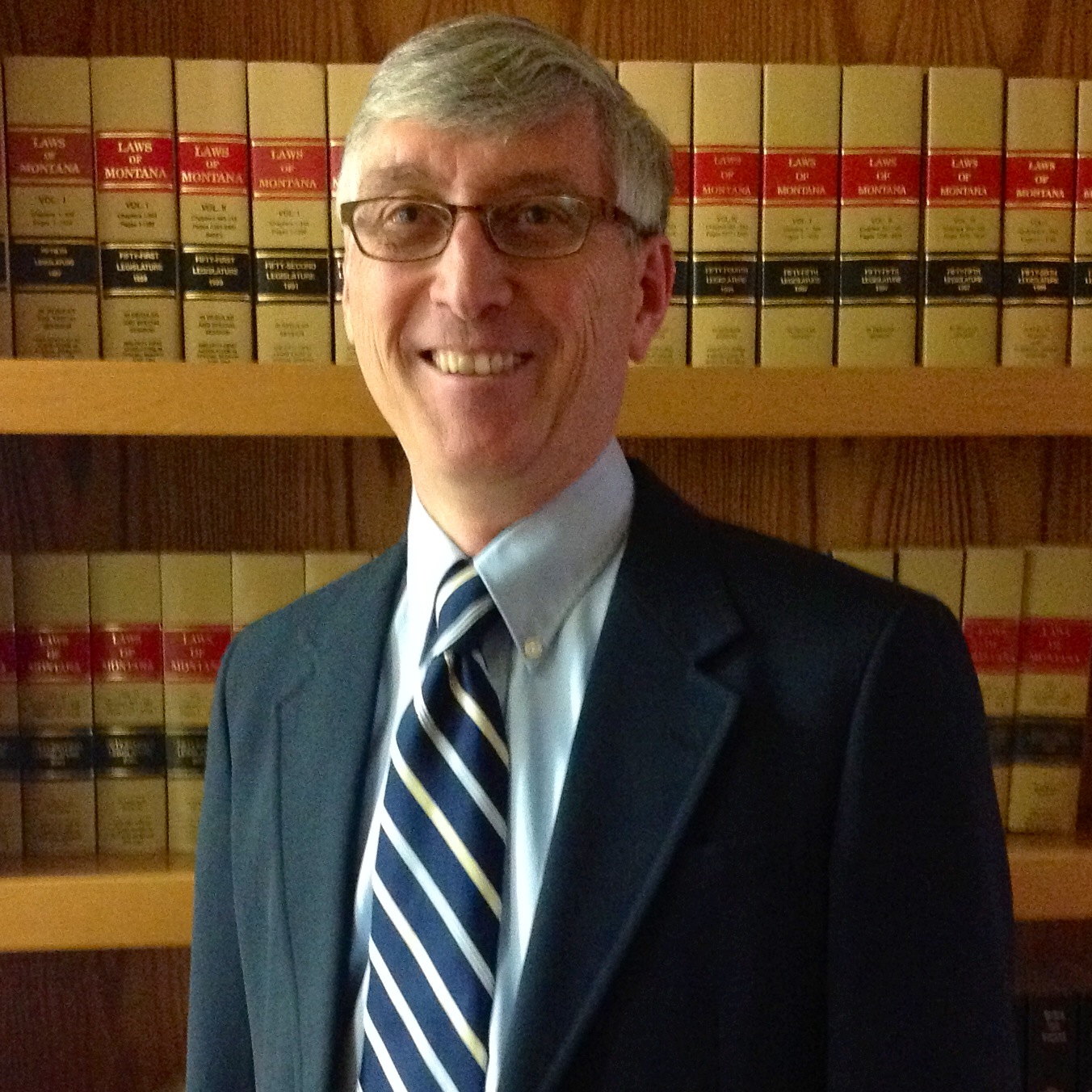 Chris Manos
Executive Director, State Bar of Montana
If you are a member of a bar association in America, chances are pretty good that you have benefitted from the good counsel of Chris Manos, the Executive Director of the State Bar of Montana. When bar association executives assemble for training and collaboration, Chris has volunteered his expertise in planning and mentoring for new executives. He was the Chair of the National Association of Bar Executives Chief Staff Executive Program Committee and new executive director orientation and Chair of the Program Committee for the mid-year and annual meetings. Chris is organized and understated, as befits a West Point graduate and retired Colonel in the Army Reserve. Chris has served as Executive Director since 2001, but he’s forward-looking in the best way, making sure the State Bar of Montana and its members are prepared for what’s next as law evolves.
Chris Manos
Executive Director, State Bar of Montana
If you are a member of a bar association in America, chances are pretty good that you have benefitted from the good counsel of Chris Manos, the Executive Director of the State Bar of Montana. When bar association executives assemble for training and collaboration, Chris has volunteered his expertise in planning and mentoring for new executives. He was the Chair of the National Association of Bar Executives Chief Staff Executive Program Committee and new executive director orientation and Chair of the Program Committee for the mid-year and annual meetings. Chris is organized and understated, as befits a West Point graduate and retired Colonel in the Army Reserve. Chris has served as Executive Director since 2001, but he’s forward-looking in the best way, making sure the State Bar of Montana and its members are prepared for what’s next as law evolves.
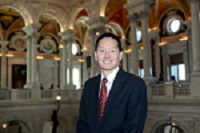 David Mao
Deputy Librarian of Congress, Library of Congress
The Library of Congress is in a time of great change. Less of the world’s information resides in books, and private companies are scanning large volumes of print to digital. To top it all off, only a few months after Mao signed on as his principal deputy, James Billington, the 13th Librarian of Congress, announced his retirement after 28 years in the post. Into this challenging environment heads David Mao, the immediate past Law Librarian of Congress and newly the Deputy Librarian of Congress. David is well known in the world of library science, rising from private law firm practice at Covington & Burling to the Congressional Research Service before joining the Law Library of Congress. Although the Library of Congress’s principal patron is Congress itself, the Library prides itself in its accessibility to the Supreme Court, the Executive Branch, and to the public. David has said that he views his role as an ambassador to the world’s legal and library communities. They say that great opportunity lies in times of greatest change. No doubt David is the right person to take advantages of these great opportunities at the Library of Congress in the coming years.
David Mao
Deputy Librarian of Congress, Library of Congress
The Library of Congress is in a time of great change. Less of the world’s information resides in books, and private companies are scanning large volumes of print to digital. To top it all off, only a few months after Mao signed on as his principal deputy, James Billington, the 13th Librarian of Congress, announced his retirement after 28 years in the post. Into this challenging environment heads David Mao, the immediate past Law Librarian of Congress and newly the Deputy Librarian of Congress. David is well known in the world of library science, rising from private law firm practice at Covington & Burling to the Congressional Research Service before joining the Law Library of Congress. Although the Library of Congress’s principal patron is Congress itself, the Library prides itself in its accessibility to the Supreme Court, the Executive Branch, and to the public. David has said that he views his role as an ambassador to the world’s legal and library communities. They say that great opportunity lies in times of greatest change. No doubt David is the right person to take advantages of these great opportunities at the Library of Congress in the coming years.
 Kate Martin
Law Librarian, Circuit Court for Montgomery County, Maryland; President, Law Librarians of Maryland
“Access to justice is a core value of law librarians – and it is becoming more critical as professional legal assistance becomes more expensive and beyond the reach of even average, middle-class Americans," according to Kate. The problem of access to justice seems large and intractable. But that didn’t stop Kate Martin from taking action to address it. Kate organizes “Everyday Law” workshops, where people can learn about nuts-and-bolts legal issues, like their online privacy rights, or the laws that affect their houses. In addition, last year Kate organized the first national access-to-justice summit for librarians. Kate also pioneered the first conference for private firm librarians, the day-long Private Law Libraries Summit, held annually in conjunction with the American Association of Law Libraries annual meeting. No one of us can solve large problems like the justice gap – but the only way to solve big problems is when people like Kate take action in their communities.
Kate Martin
Law Librarian, Circuit Court for Montgomery County, Maryland; President, Law Librarians of Maryland
“Access to justice is a core value of law librarians – and it is becoming more critical as professional legal assistance becomes more expensive and beyond the reach of even average, middle-class Americans," according to Kate. The problem of access to justice seems large and intractable. But that didn’t stop Kate Martin from taking action to address it. Kate organizes “Everyday Law” workshops, where people can learn about nuts-and-bolts legal issues, like their online privacy rights, or the laws that affect their houses. In addition, last year Kate organized the first national access-to-justice summit for librarians. Kate also pioneered the first conference for private firm librarians, the day-long Private Law Libraries Summit, held annually in conjunction with the American Association of Law Libraries annual meeting. No one of us can solve large problems like the justice gap – but the only way to solve big problems is when people like Kate take action in their communities.
 Garry Mathiason
Shareholder and Chair, Robotics, Artificial Intelligence and Automation Industry Group, Littler Mendelson
Before robots were even taken seriously in movies, Garry Mathiason was thinking about how our law would change because of them. Garry, who is the immediate past Chair of Littler, published his first paper about robots and the law in 1965 and anticipates that by 2025 half of the jobs currently performed in the U.S. will be performed by intricate machines and software. Before anyone in law saw practical applications for the study of robotics, he formed Littler’s Robotics, Artificial Intelligence (AI) and Automation Industry Group. Working with Littler’s Workplace Policy Institute, Garry provides model policies and expert testimony to legislatures, parliaments and regulatory agencies on employment and labor law compliance, and provides practical recommendations on the adoption and implementation of workplace robotics. He's been working with the Congressional Robotics Caucus to develop legislation to help employers and robotics developers.
Garry Mathiason
Shareholder and Chair, Robotics, Artificial Intelligence and Automation Industry Group, Littler Mendelson
Before robots were even taken seriously in movies, Garry Mathiason was thinking about how our law would change because of them. Garry, who is the immediate past Chair of Littler, published his first paper about robots and the law in 1965 and anticipates that by 2025 half of the jobs currently performed in the U.S. will be performed by intricate machines and software. Before anyone in law saw practical applications for the study of robotics, he formed Littler’s Robotics, Artificial Intelligence (AI) and Automation Industry Group. Working with Littler’s Workplace Policy Institute, Garry provides model policies and expert testimony to legislatures, parliaments and regulatory agencies on employment and labor law compliance, and provides practical recommendations on the adoption and implementation of workplace robotics. He's been working with the Congressional Robotics Caucus to develop legislation to help employers and robotics developers.
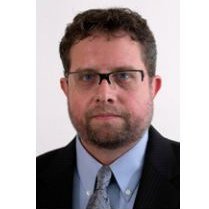 Ryan McClead
Legal Technology Innovation Architect, Norton Rose Fulbright
Ryan McClead leads Norton Rose Fulbright's Global Legal Technology Innovation initiative, solving information supply-chain problems in one of the world’s largest law firms. Ryan is a regular contributor to the popular 3 Geeks and a Law Blog (perhaps the most prolific contributor recently). According to Original Geek (OG) Greg Lambert: Ryan’s writing is “pure genius.” Lambert adds: “The Exponential Law Firm series, and The Myth of Disruptive Technology are instant classics and not only show Ryan's ability to talk about current trends in legal technology, but also to peer into the future, all in a funny, imaginative, and thought-provoking way. Ryan's projects at Norton Rose Fulbright also expose his creative side. Pushing out technologies directly to the firm’s clients and other consumers across the globe, Ryan is turning the concepts of what we think technology can do within a law firm on its head. We could all use a Ryan or two at our firms, to enable us to break out of our groupthink mentality and see things from a completely different perspective.”
Ryan McClead
Legal Technology Innovation Architect, Norton Rose Fulbright
Ryan McClead leads Norton Rose Fulbright's Global Legal Technology Innovation initiative, solving information supply-chain problems in one of the world’s largest law firms. Ryan is a regular contributor to the popular 3 Geeks and a Law Blog (perhaps the most prolific contributor recently). According to Original Geek (OG) Greg Lambert: Ryan’s writing is “pure genius.” Lambert adds: “The Exponential Law Firm series, and The Myth of Disruptive Technology are instant classics and not only show Ryan's ability to talk about current trends in legal technology, but also to peer into the future, all in a funny, imaginative, and thought-provoking way. Ryan's projects at Norton Rose Fulbright also expose his creative side. Pushing out technologies directly to the firm’s clients and other consumers across the globe, Ryan is turning the concepts of what we think technology can do within a law firm on its head. We could all use a Ryan or two at our firms, to enable us to break out of our groupthink mentality and see things from a completely different perspective.”
 Gavin McGrane
CEO and Founder, PacerPro
Everyone who uses PACER knows that it’s broken, and many people have complained about it. Gavin McGrane didn’t just complain; he did something about it, the mark in trade of a legal entrepreneur. He saw a problem, and he built a solution. That solution is PacerPro, which creates a free, functional, modern interface with PACER. As Sam Glover of Lawyerist puts it: “You can keep track of all your cases in one place, search multiple courts’ PACER databases from a single search box, get search results that actually give you the information you need, download an entire docket with one click, and much more. . . . If you have anything to do with the federal courts, do yourself a favor and sign up for a free PacerPro account right now.”
Gavin McGrane
CEO and Founder, PacerPro
Everyone who uses PACER knows that it’s broken, and many people have complained about it. Gavin McGrane didn’t just complain; he did something about it, the mark in trade of a legal entrepreneur. He saw a problem, and he built a solution. That solution is PacerPro, which creates a free, functional, modern interface with PACER. As Sam Glover of Lawyerist puts it: “You can keep track of all your cases in one place, search multiple courts’ PACER databases from a single search box, get search results that actually give you the information you need, download an entire docket with one click, and much more. . . . If you have anything to do with the federal courts, do yourself a favor and sign up for a free PacerPro account right now.”
 Joe Milstone
Co-Founder and CEO, Cognition LLP
The story is familiar – young lawyers suffering with the long hours and stress of a traditional law firm. What happened next is different: Cognition LLP co-founders Joe Milstone and Rubsun Ho decided to try lowering the billing pressure of their old law firms by starting their own firm. Cognition’s legal team works remotely, or in-house with clients, and diminishes the typical firm overhead expense while providing real-time “Value Based Billing” that allows clients to adjust their invoices to reflect the service received. That allows the firm to work at rates that emerging businesses can afford. The approach is paying off. Cognition has grown to 40 lawyers, and it is leading a “New Law” revolution in Canada. Cognition has been recognized as one of Canada's top 10 Most Admired Corporate Cultures, and the firm has been named to the PROFIT 500 ranking of Canada's Fastest-Growing Companies for the last three years.
Joe Milstone
Co-Founder and CEO, Cognition LLP
The story is familiar – young lawyers suffering with the long hours and stress of a traditional law firm. What happened next is different: Cognition LLP co-founders Joe Milstone and Rubsun Ho decided to try lowering the billing pressure of their old law firms by starting their own firm. Cognition’s legal team works remotely, or in-house with clients, and diminishes the typical firm overhead expense while providing real-time “Value Based Billing” that allows clients to adjust their invoices to reflect the service received. That allows the firm to work at rates that emerging businesses can afford. The approach is paying off. Cognition has grown to 40 lawyers, and it is leading a “New Law” revolution in Canada. Cognition has been recognized as one of Canada's top 10 Most Admired Corporate Cultures, and the firm has been named to the PROFIT 500 ranking of Canada's Fastest-Growing Companies for the last three years.
 Joe Mornin
Founder, Bestlaw
You know what’s hard? Building legal research software. Which makes it all the more impressive that Joe Mornin found the time to build a Chrome extension for WestlawNext chock-a-block full of awesome, timesaving features – while he was a 3L at UC Berkeley School of Law (Boalt Hall) and the Editor-in-Chief of the Berkeley Technology Law Journal. Joe’s plugin (soon to be extended to LexisNexis and Firefox) does useful things, like allow one-click copy of a Bluebook-compliant citation, or keep the service from logging you out due to inactivity. One might expect that Joe would get under the hood of his legal research software. He previously worked at the Electronic Frontier Foundation, the Berkman Center for Internet & Society at Harvard Law School, the Harvard Library Innovation Lab, and the Center for Democracy & Technology.
Joe Mornin
Founder, Bestlaw
You know what’s hard? Building legal research software. Which makes it all the more impressive that Joe Mornin found the time to build a Chrome extension for WestlawNext chock-a-block full of awesome, timesaving features – while he was a 3L at UC Berkeley School of Law (Boalt Hall) and the Editor-in-Chief of the Berkeley Technology Law Journal. Joe’s plugin (soon to be extended to LexisNexis and Firefox) does useful things, like allow one-click copy of a Bluebook-compliant citation, or keep the service from logging you out due to inactivity. One might expect that Joe would get under the hood of his legal research software. He previously worked at the Electronic Frontier Foundation, the Berkman Center for Internet & Society at Harvard Law School, the Harvard Library Innovation Lab, and the Center for Democracy & Technology.
 Jason Moyse
Chief Legal Provocateur, Lawmade.com; Industry Lead, MaRS LegalX; Manager, Legal Business Solutions at Elevate Services
Disrupting the legal industry by combining Lean Startup and Six Sigma concepts is the basis for LegalX and LawMade.com, founded by Jason Moyse and Aron Solomon. Part of the NewLaw movement, Jason and Aron are on the cutting edge of (r)evolutionizing the business processes of law firms. Through LegalX and LawMade, Jason and Aron seek to create an ecosystem in which lawyers and firms can experiment, try something different, innovate, or tinker. They know that there are better or more efficient ways of delivering legal services, and they have created environments in which existing firms or companies and startups alike can try something new. Their approach is broad-ranging, from throwing events and connecting people to writing and consulting with other legal adventurers.
Jason Moyse
Chief Legal Provocateur, Lawmade.com; Industry Lead, MaRS LegalX; Manager, Legal Business Solutions at Elevate Services
Disrupting the legal industry by combining Lean Startup and Six Sigma concepts is the basis for LegalX and LawMade.com, founded by Jason Moyse and Aron Solomon. Part of the NewLaw movement, Jason and Aron are on the cutting edge of (r)evolutionizing the business processes of law firms. Through LegalX and LawMade, Jason and Aron seek to create an ecosystem in which lawyers and firms can experiment, try something different, innovate, or tinker. They know that there are better or more efficient ways of delivering legal services, and they have created environments in which existing firms or companies and startups alike can try something new. Their approach is broad-ranging, from throwing events and connecting people to writing and consulting with other legal adventurers.
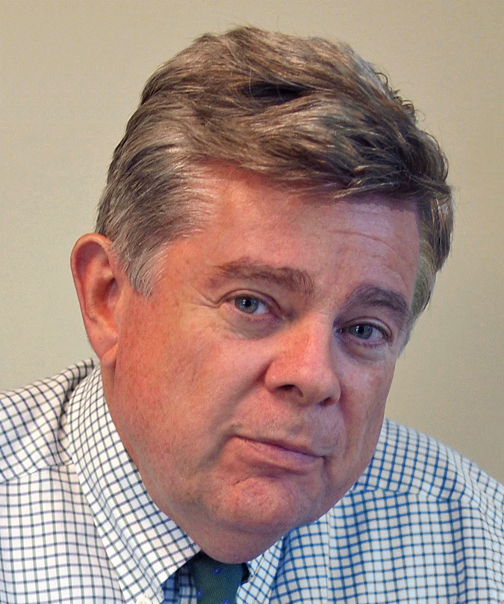 Pat Nester
Assistant Deputy Director, State Bar Of Texas; Director, TexasBarCLE; Executive Director, Texas Bar College
Continuing legal education has changed enormously over the past few years, so imagine how different it was when Pat Nester, the Director of TexasBarCLE, began working to train lawyers with the State Bar of Texas 29 years ago. With firm roots in the past, Nester has an eye on the future of CLE, from flipped classrooms and MOOCs to learning events right at the point where lawyers need them. Presiding during a time of change is difficult, but Nester’s creativity, vision, and ability to motivate volunteers year after year have made him a national leader of CLE community and have won TexasBarCLE second-to-none nationwide.
Pat Nester
Assistant Deputy Director, State Bar Of Texas; Director, TexasBarCLE; Executive Director, Texas Bar College
Continuing legal education has changed enormously over the past few years, so imagine how different it was when Pat Nester, the Director of TexasBarCLE, began working to train lawyers with the State Bar of Texas 29 years ago. With firm roots in the past, Nester has an eye on the future of CLE, from flipped classrooms and MOOCs to learning events right at the point where lawyers need them. Presiding during a time of change is difficult, but Nester’s creativity, vision, and ability to motivate volunteers year after year have made him a national leader of CLE community and have won TexasBarCLE second-to-none nationwide.
 Dean Andrew Perlman
Dean, Suffolk Law School; Director, Institute on Law Practice Technology and Innovation; Director, Legal Technology and Innovation Concentration
Andy Perlman has been a popular law professor at Suffolk Law (so popular that he has just been named Dean of the school), teaching professional responsibility, but with an angle of what that responsibility might look like in a differently regulated future for lawyers. Andy has written numerous articles on professional responsibility, including the idea that we should focus less on the “law of lawyering,” and more on the “law of legal services.” The former focuses on the effect of regulation on lawyers, the latter on the effect of regulation on consumers of legal services and access to justice more generally. It’s no wonder that Andy is invited to be a central part of every conversation about the future of legal services. He is the Vice Chair of the ABA Commission on the Future of Legal Services, and he served as Chief Reporter of the ABA Commission on Ethics 20/20, among many other committees related to the future of law.
Dean Andrew Perlman
Dean, Suffolk Law School; Director, Institute on Law Practice Technology and Innovation; Director, Legal Technology and Innovation Concentration
Andy Perlman has been a popular law professor at Suffolk Law (so popular that he has just been named Dean of the school), teaching professional responsibility, but with an angle of what that responsibility might look like in a differently regulated future for lawyers. Andy has written numerous articles on professional responsibility, including the idea that we should focus less on the “law of lawyering,” and more on the “law of legal services.” The former focuses on the effect of regulation on lawyers, the latter on the effect of regulation on consumers of legal services and access to justice more generally. It’s no wonder that Andy is invited to be a central part of every conversation about the future of legal services. He is the Vice Chair of the ABA Commission on the Future of Legal Services, and he served as Chief Reporter of the ABA Commission on Ethics 20/20, among many other committees related to the future of law.
 William (Bill) Raftery
Knowledge and Information Services Analyst, National Center for State Courts
Bill Raftery is the editor of Gavel to Gavel, a two-time ABA Journal top 100 law blog, that shares weekly reviews of legislation in all fifty states affecting the courts and judiciary. It’s a huge task, with copious amounts of legislation and legislative activity to sort through every day, yet Bill and his team find and report trends related to the courts across the country. Bill's efforts match strong information management with technical skill and improve access to an otherwise obscure area of the administration of justice. His current work includes research on legislative-judicial relations, judicial selection, judicial conduct, and court security.
William (Bill) Raftery
Knowledge and Information Services Analyst, National Center for State Courts
Bill Raftery is the editor of Gavel to Gavel, a two-time ABA Journal top 100 law blog, that shares weekly reviews of legislation in all fifty states affecting the courts and judiciary. It’s a huge task, with copious amounts of legislation and legislative activity to sort through every day, yet Bill and his team find and report trends related to the courts across the country. Bill's efforts match strong information management with technical skill and improve access to an otherwise obscure area of the administration of justice. His current work includes research on legislative-judicial relations, judicial selection, judicial conduct, and court security.
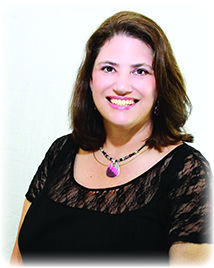 Trisha Ryan
Principal, Trisha L. Ryan, P.A.
Trisha Ryan is a self-made lawyer. When she was 30, she had only a high-school education and was a divorced mother of two, working 60 hours per week managing an Arby’s in Bonita Springs, Fla. She knew she needed a way out, and that education would be that way. Trisha went to college and got a job as a paralegal, but quickly realized that she wouldn’t be happy preparing documents for others. She went to law school and started her own firm, where she keeps her rates reasonable enough that she previously could have afforded them. “If you need legal services, you deserve legal services, you are entitled to legal services. Just because you can’t pay $400 an hour doesn’t mean you should go without an attorney. That’s my philosophy.” Trisha also volunteers as a spokesperson for Dress for Success, an organization that helped her with professional clothes when she was looking for her first paralegal job.
Trisha Ryan
Principal, Trisha L. Ryan, P.A.
Trisha Ryan is a self-made lawyer. When she was 30, she had only a high-school education and was a divorced mother of two, working 60 hours per week managing an Arby’s in Bonita Springs, Fla. She knew she needed a way out, and that education would be that way. Trisha went to college and got a job as a paralegal, but quickly realized that she wouldn’t be happy preparing documents for others. She went to law school and started her own firm, where she keeps her rates reasonable enough that she previously could have afforded them. “If you need legal services, you deserve legal services, you are entitled to legal services. Just because you can’t pay $400 an hour doesn’t mean you should go without an attorney. That’s my philosophy.” Trisha also volunteers as a spokesperson for Dress for Success, an organization that helped her with professional clothes when she was looking for her first paralegal job.
 Brendan Schulman
Special Counsel, Kramer Levin Naftalis & Frankel LLP
Brendan Schulman, or “The Drone Lawyer,” as he is sometimes known, heads Kramer Levin’s Unmanned Aircraft Systems practice, the first of its kind in the United States. He successfully defended the first person prosecuted for operating a commercial drone in the United States, and advises manufacturers, business people, and hobbyists about the safe and legal operation of drones in a rapidly changing regulatory climate. “We seem to be heading down a road to regulations that will look a lot like full-blown aviation regulations,” he said recently in an interview with 3D Robotics. “The question for everyone is whether that’s what we need to achieve the appropriate level of safety and fully realize the potential social and economic good that the arrival of this technology heralds.”
Brendan Schulman
Special Counsel, Kramer Levin Naftalis & Frankel LLP
Brendan Schulman, or “The Drone Lawyer,” as he is sometimes known, heads Kramer Levin’s Unmanned Aircraft Systems practice, the first of its kind in the United States. He successfully defended the first person prosecuted for operating a commercial drone in the United States, and advises manufacturers, business people, and hobbyists about the safe and legal operation of drones in a rapidly changing regulatory climate. “We seem to be heading down a road to regulations that will look a lot like full-blown aviation regulations,” he said recently in an interview with 3D Robotics. “The question for everyone is whether that’s what we need to achieve the appropriate level of safety and fully realize the potential social and economic good that the arrival of this technology heralds.”
 Matt Sellers
CEO and Founder, Quimbee
Matt Sellers is the CEO of Quimbee, a legal education platform that makes it easy, fun, and interesting to learn about the law. The service, which has more than 10,000 law students, offers case briefs, courses, quizzes, and a Web-based outliner for law students, all targeted to major casebooks. The service is Web-based and beautifully designed. (Matt and Quimbee get extra points because the service is named after Mayor Quimby of The Simpsons.)
Matt Sellers
CEO and Founder, Quimbee
Matt Sellers is the CEO of Quimbee, a legal education platform that makes it easy, fun, and interesting to learn about the law. The service, which has more than 10,000 law students, offers case briefs, courses, quizzes, and a Web-based outliner for law students, all targeted to major casebooks. The service is Web-based and beautifully designed. (Matt and Quimbee get extra points because the service is named after Mayor Quimby of The Simpsons.)
 Aron Solomon
Chief Innovation Operative, Lawmade.com; Innovation Lead for the LegalX cluster; Senior Advisor for education technology at MaRS
Disrupting the legal industry by combining Lean Startup and Six Sigma concepts is the basis for LegalX and LawMade.com, founded by Jason Moyse and Aron Solomon. Part of the NewLaw movement, Jason and Aron are on the cutting edge of (r)evolutionizing the business processes of law firms. Through LegalX and LawMade, Jason and Aron seek to create an ecosystem in which lawyers and firms can experiment, try something different, innovate, or tinker. They know that there are better or more efficient ways of delivering legal services, and they have created environments in which existing firms or companies and startups alike can try something new. Their approach is broad-ranging, from throwing events and connecting people to writing and consulting with other legal adventurers.
Aron Solomon
Chief Innovation Operative, Lawmade.com; Innovation Lead for the LegalX cluster; Senior Advisor for education technology at MaRS
Disrupting the legal industry by combining Lean Startup and Six Sigma concepts is the basis for LegalX and LawMade.com, founded by Jason Moyse and Aron Solomon. Part of the NewLaw movement, Jason and Aron are on the cutting edge of (r)evolutionizing the business processes of law firms. Through LegalX and LawMade, Jason and Aron seek to create an ecosystem in which lawyers and firms can experiment, try something different, innovate, or tinker. They know that there are better or more efficient ways of delivering legal services, and they have created environments in which existing firms or companies and startups alike can try something new. Their approach is broad-ranging, from throwing events and connecting people to writing and consulting with other legal adventurers.
 David Sparks
Founder of Sparks Law; Blogger, MacSparky.com
By day, David Sparks is a corporate lawyer in Orange County, Ca. But he is also (and we use the term endearingly) a geek of the highest order. David is a podcaster, blogger, and author who spends a lot of time finding the best ways to work, and the best tools, hardware, and workflows for using Apple products to get work done. He sweats the small details. Most importantly, he writes extensively (and clearly), sharing with others the benefit of his work. For example, he has written numerous field guides to legal productivity topics such as e-mail, perfect presentations, Mac tips, or going paperless. David is the geek you need, not the geek you deserve.
David Sparks
Founder of Sparks Law; Blogger, MacSparky.com
By day, David Sparks is a corporate lawyer in Orange County, Ca. But he is also (and we use the term endearingly) a geek of the highest order. David is a podcaster, blogger, and author who spends a lot of time finding the best ways to work, and the best tools, hardware, and workflows for using Apple products to get work done. He sweats the small details. Most importantly, he writes extensively (and clearly), sharing with others the benefit of his work. For example, he has written numerous field guides to legal productivity topics such as e-mail, perfect presentations, Mac tips, or going paperless. David is the geek you need, not the geek you deserve.
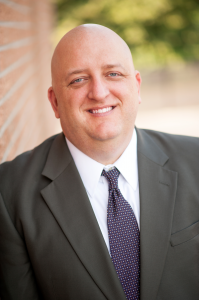 Ben Stevens
Senior Partner, The Stevens Law Firm, P.A.; The Mac Lawyer
To lawyers in Spartanburg, SC, Ben Stevens is the founding member of a successful family law practice specializing in complex cases. But to the rest of the world, Ben is The Mac Lawyer. Not “a” Mac lawyer. Capital T, capital M, capital L: The Mac Lawyer. Ben moved his practice to all-Mac in 2005, long before it was fashionable to sport the Apple logo, and he began publishing his trademark blog in 2006 to help other lawyers get the most out of technology in their law practices. Ben’s acumen in the Apple ecosystem has made him a sought-after speaker nationwide, and his blog is a definitive resource for the growing number of lawyers using Apple products in their law offices.
Ben Stevens
Senior Partner, The Stevens Law Firm, P.A.; The Mac Lawyer
To lawyers in Spartanburg, SC, Ben Stevens is the founding member of a successful family law practice specializing in complex cases. But to the rest of the world, Ben is The Mac Lawyer. Not “a” Mac lawyer. Capital T, capital M, capital L: The Mac Lawyer. Ben moved his practice to all-Mac in 2005, long before it was fashionable to sport the Apple logo, and he began publishing his trademark blog in 2006 to help other lawyers get the most out of technology in their law practices. Ben’s acumen in the Apple ecosystem has made him a sought-after speaker nationwide, and his blog is a definitive resource for the growing number of lawyers using Apple products in their law offices.
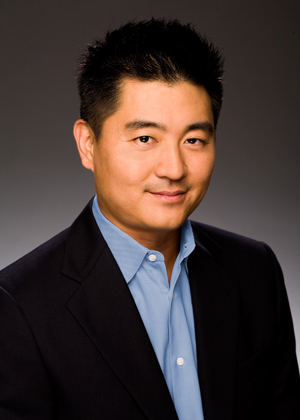 John Suh
CEO, Legal Zoom
John Suh
CEO, Legal Zoom
A few years ago, LegalZoom was more of a concept that a company, and the idea that some parts of the practice of law would become commoditized, and perhaps wouldn’t even involve lawyers, seemed very far fetched. Fast forward to 2015, and it seems more like a foregone conclusion. Some of that change has come from the market for legal services itself, and some has come from the expectation of consumers. But it also is completely true because John Suh and his team at LegalZoom have willed these truths into existence. With vision and relentless execution, Suh has made the name LegalZoom synonymous with self-help legal transactions, using technology to ensure higher quality at lower cost.
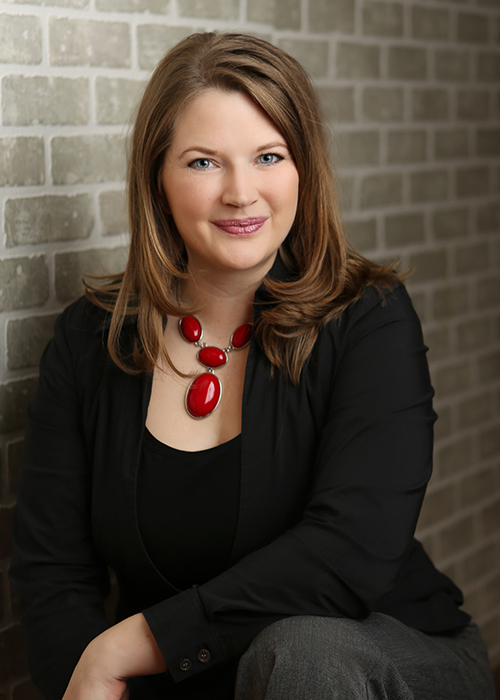 Lynn Schmidt Walters
Co-Founder, JD Mentor; Founder, Lux Law Advising
Outside of the context of large firms, the legal profession has very few opportunities for mentoring or for finding a mentor. Lynn Schmidt Walters co-founded JD Mentor, a series of workshops designed to provide mentors for new lawyers stepping into their first legal jobs. Walters offers as an example her experience as a recent law school graduate in 2004. “I took the bar and passed. And that was it: I was a lawyer,” Walters said. “But that is as far as I had planned. I guess I hoped that the next steps would be obvious once I was a licensed attorney. They weren’t.” Through Lux Law and JD Mentor, Walters helps lawyers find ways to build a law practice, but to do that in a way that manages stress and promotes intentionality and mindfulness. Walters plans future workshops devoted to specific practice areas and resources for more senior lawyers.
Lynn Schmidt Walters
Co-Founder, JD Mentor; Founder, Lux Law Advising
Outside of the context of large firms, the legal profession has very few opportunities for mentoring or for finding a mentor. Lynn Schmidt Walters co-founded JD Mentor, a series of workshops designed to provide mentors for new lawyers stepping into their first legal jobs. Walters offers as an example her experience as a recent law school graduate in 2004. “I took the bar and passed. And that was it: I was a lawyer,” Walters said. “But that is as far as I had planned. I guess I hoped that the next steps would be obvious once I was a licensed attorney. They weren’t.” Through Lux Law and JD Mentor, Walters helps lawyers find ways to build a law practice, but to do that in a way that manages stress and promotes intentionality and mindfulness. Walters plans future workshops devoted to specific practice areas and resources for more senior lawyers.
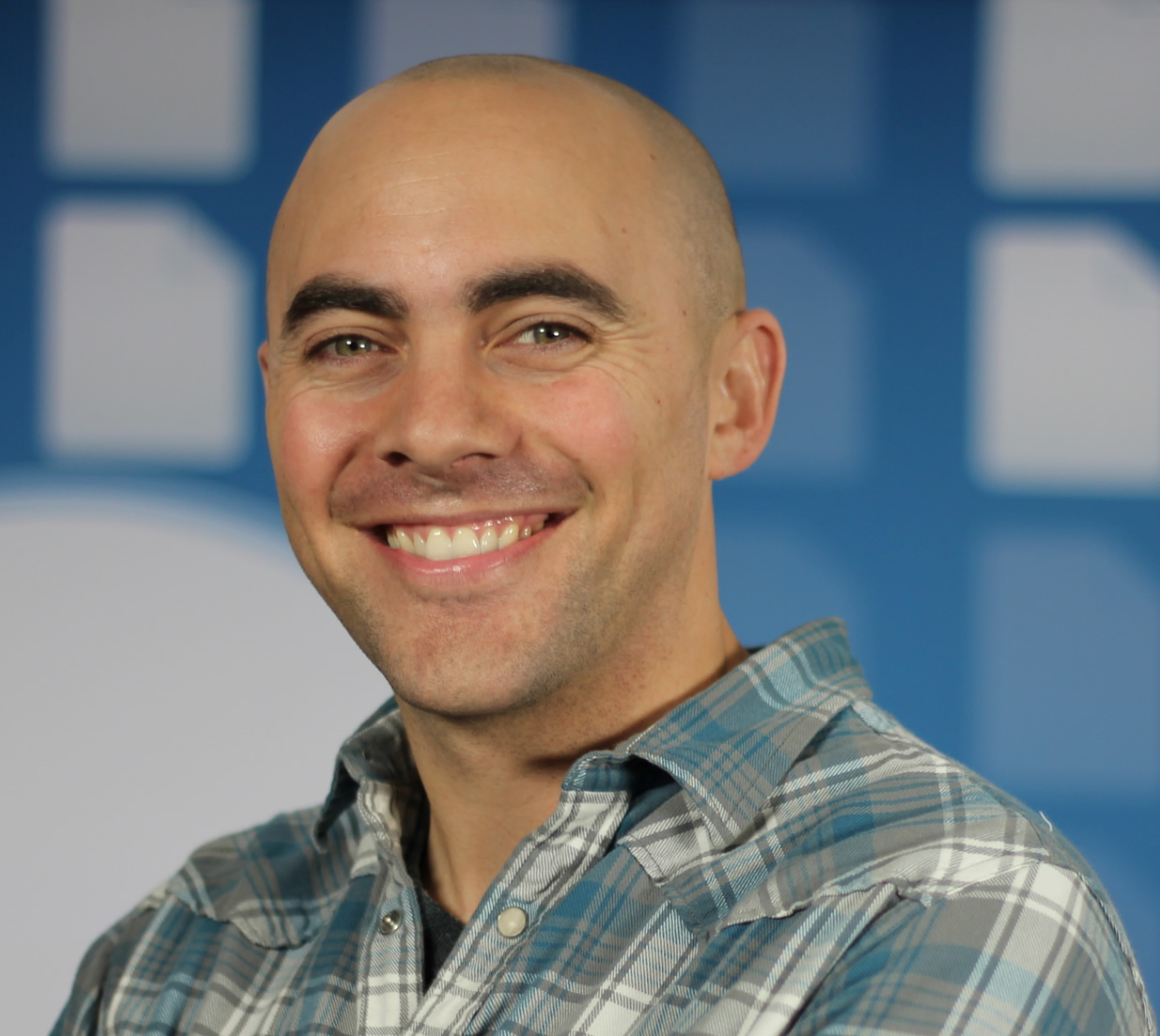 Andy Wilson
Co-Founder and CEO, Logikcull
Andy Wilson describes himself as “whatever the opposite of a Luddite is.” And that’s a very apt description, because Andy has been working to build disruptive software for more than a decade. Andy and his team at Logikcull were pioneering SaaS-based e-discovery software in 2004, with tools that automate discovery, make costs transparent, and deliver efficiency with a high level of security. And although the last decade has been a roller coaster for software companies and legal tech in particular, Logikcull has been growing organically for years, and it was profitable immediately after its founding. In fact, the company raised its first seed round of financing more than 10 years after Logikcull was founded. Logikcull’s software is SaaS-based, but the company is also sass-based, reflecting the mischievous nature of its co-founder and CEO.
Andy Wilson
Co-Founder and CEO, Logikcull
Andy Wilson describes himself as “whatever the opposite of a Luddite is.” And that’s a very apt description, because Andy has been working to build disruptive software for more than a decade. Andy and his team at Logikcull were pioneering SaaS-based e-discovery software in 2004, with tools that automate discovery, make costs transparent, and deliver efficiency with a high level of security. And although the last decade has been a roller coaster for software companies and legal tech in particular, Logikcull has been growing organically for years, and it was profitable immediately after its founding. In fact, the company raised its first seed round of financing more than 10 years after Logikcull was founded. Logikcull’s software is SaaS-based, but the company is also sass-based, reflecting the mischievous nature of its co-founder and CEO.
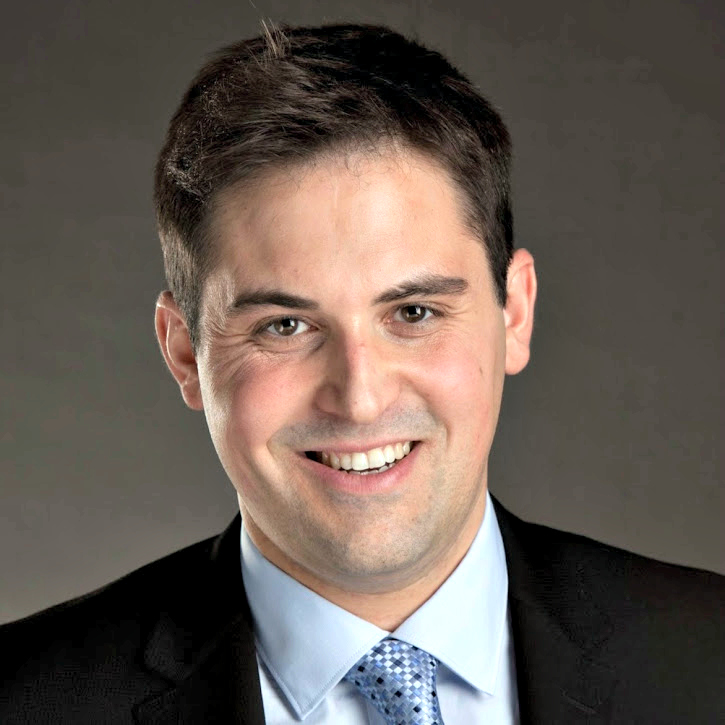 Daniel Yaniv
Principal, Yaniv & Associates, PC
Daniel Yaniv
Principal, Yaniv & Associates, PC
In 2008, Yaniv was an associate at a mid-size Rockland County litigation firm and was eager to go out on his own. A few months in, he realized that, if he was going to build a practice, he needed to specialize. Daniel decided to concentrate on uncontested divorce. Although not as lucrative as litigated divorce, uncontested divorce had greater demand and greater potential for adaptability to a web-based law practice, since court appearances are not required. Daniel wanted to make the divorce process as simple and convenient as making a purchase on Amazon. The commercial landscape was rapidly evolving as well; consumers were becoming more accustomed to shopping online and looking to the Internet to solve their day-to-day problems. Daniel built an online platform for delivering legal services and started a marketing campaign based on client reviews on Avvo, Google, and other lawyer ratings sites. Today, Daniel's firm helps about 1,500 clients a year, 99 percent of whom come from the web. Based on court statistics, his office files more uncontested divorces than any other law firm in New York.
#1 Legal Research App
Winner of the prestigious American Association of Law Libraries (New Product) Award, Fastcase for iOS, Android, and
Windows Phone is used by more attorneys than any other legal app according to the ABA. Anyone may use the app for free
to access Fastcase's comprehensive legal research database on the go.
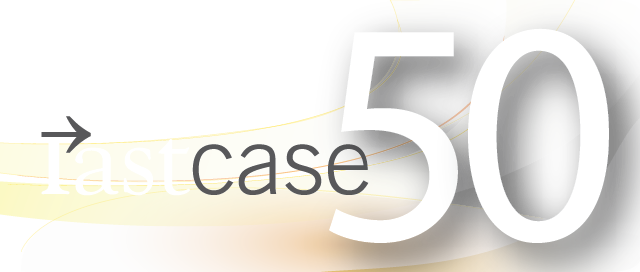
 Hon. Ann Aiken
Chief Judge, United States District Court of Oregon
Hon. Ann Aiken
Chief Judge, United States District Court of Oregon Michelle Alexander
Author; Associate Professor of Law, Ohio State University
Michelle Alexander
Author; Associate Professor of Law, Ohio State University Pablo Arredondo
Vice President of Legal Research, Casetext
Pablo Arredondo
Vice President of Legal Research, Casetext Rich Barton
Founder of Expedia; Co-Founder of Zillow, Glassdoor
Rich Barton
Founder of Expedia; Co-Founder of Zillow, Glassdoor Howard Bashman
Appellate lawyer; Author, How Appealing blog
Howard Bashman
Appellate lawyer; Author, How Appealing blog Laura Calloway
Director, Practice Management Assistance Program at Alabama State Bar
Laura Calloway
Director, Practice Management Assistance Program at Alabama State Bar Jeena Cho
Partner at JC Law Group PC; Author; Mindfulness Instructor
Jeena Cho
Partner at JC Law Group PC; Author; Mindfulness Instructor Jared Correia
Assistant Director and Senior Law Practice Advisor at LOMAP
Jared Correia
Assistant Director and Senior Law Practice Advisor at LOMAP Scott Forman
Shareholder, Littler Mendelson; Founder of Littler CaseSmart
Scott Forman
Shareholder, Littler Mendelson; Founder of Littler CaseSmart JoAnna Forshee
CEO, InsideLegal.com and Envision Agency
JoAnna Forshee
CEO, InsideLegal.com and Envision Agency Abe Geiger
Founder and CEO, Shake
Abe Geiger
Founder and CEO, Shake Eric Goldman
Co-Director, High Tech Law Institute;Professor, Santa Clara University School of Law;Blogger, Forbes’ Tertium Quid Blog and Technology & Marketing Law Blog
Eric Goldman
Co-Director, High Tech Law Institute;Professor, Santa Clara University School of Law;Blogger, Forbes’ Tertium Quid Blog and Technology & Marketing Law Blog Oliver Goodenough
Director, Center for Legal Innovation and Professor of Law, Vermont Law School; Faculty fellow, The Berkman Center for Internet and Society at Harvard University
Oliver Goodenough
Director, Center for Legal Innovation and Professor of Law, Vermont Law School; Faculty fellow, The Berkman Center for Internet and Society at Harvard University Hon. Paul Grewal
United States Magistrate Judge for Northern District of California
Hon. Paul Grewal
United States Magistrate Judge for Northern District of California Margaret Hagan
Fellow at the Center on the Legal Profession; Lecturer at the Stanford Institute of Design
Margaret Hagan
Fellow at the Center on the Legal Profession; Lecturer at the Stanford Institute of Design Rubsun Ho
Co-founder and Partner, Cognition LLP
Rubsun Ho
Co-founder and Partner, Cognition LLP Nick Holmes
Managing Director, Infolaw
Nick Holmes
Managing Director, Infolaw William C. Hubbard
President, American Bar Association
William C. Hubbard
President, American Bar Association Michelle Hunter
Executive Director of the State Bar of Texas
Michelle Hunter
Executive Director of the State Bar of Texas Donald Verrilli, Jr.
Solicitor General of the United States
Donald Verrilli, Jr.
Solicitor General of the United States Natalie Kelly
Director, Law Practice Management Program, The State Bar of Georgia
Natalie Kelly
Director, Law Practice Management Program, The State Bar of Georgia Sheldon Krantz
Author; Senior Fellow, Georgetown Center for the Study of the Legal Profession; Executive Director of The DC Affordable Law Firm
Sheldon Krantz
Author; Senior Fellow, Georgetown Center for the Study of the Legal Profession; Executive Director of The DC Affordable Law Firm Dan LaBert
Executive Director of the National Association of Consumer Bankruptcy Attorneys (NACBA)
Dan LaBert
Executive Director of the National Association of Consumer Bankruptcy Attorneys (NACBA) Dan Lear
Director of Industry Relations, Avvo
Dan Lear
Director of Industry Relations, Avvo Joshua Lenon
Lawyer-in-Residence at Clio
Joshua Lenon
Lawyer-in-Residence at Clio Daniel Linna
Assistant Dean of Career Development & Professor of Law in Residence, Michigan State College of Law; Adjunct Professor, University of Michigan Law
Daniel Linna
Assistant Dean of Career Development & Professor of Law in Residence, Michigan State College of Law; Adjunct Professor, University of Michigan Law Lisa Linsky
Partner-in-Charge of Firm-wide Diversity and Partner-in-Charge of LGBT Diversity and Inclusion, McDermott, Will & Emery
Lisa Linsky
Partner-in-Charge of Firm-wide Diversity and Partner-in-Charge of LGBT Diversity and Inclusion, McDermott, Will & Emery Hon. Goodwin Liu
Associate Justice, California Supreme Court
Hon. Goodwin Liu
Associate Justice, California Supreme Court Chris Manos
Executive Director, State Bar of Montana
Chris Manos
Executive Director, State Bar of Montana David Mao
Deputy Librarian of Congress, Library of Congress
David Mao
Deputy Librarian of Congress, Library of Congress Kate Martin
Law Librarian, Circuit Court for Montgomery County, Maryland; President, Law Librarians of Maryland
Kate Martin
Law Librarian, Circuit Court for Montgomery County, Maryland; President, Law Librarians of Maryland Garry Mathiason
Shareholder and Chair, Robotics, Artificial Intelligence and Automation Industry Group, Littler Mendelson
Garry Mathiason
Shareholder and Chair, Robotics, Artificial Intelligence and Automation Industry Group, Littler Mendelson Ryan McClead
Legal Technology Innovation Architect, Norton Rose Fulbright
Ryan McClead
Legal Technology Innovation Architect, Norton Rose Fulbright Gavin McGrane
CEO and Founder, PacerPro
Gavin McGrane
CEO and Founder, PacerPro Joe Milstone
Co-Founder and CEO, Cognition LLP
Joe Milstone
Co-Founder and CEO, Cognition LLP Joe Mornin
Founder, Bestlaw
Joe Mornin
Founder, Bestlaw Jason Moyse
Chief Legal Provocateur, Lawmade.com; Industry Lead, MaRS LegalX; Manager, Legal Business Solutions at Elevate Services
Jason Moyse
Chief Legal Provocateur, Lawmade.com; Industry Lead, MaRS LegalX; Manager, Legal Business Solutions at Elevate Services Pat Nester
Assistant Deputy Director, State Bar Of Texas; Director, TexasBarCLE; Executive Director, Texas Bar College
Pat Nester
Assistant Deputy Director, State Bar Of Texas; Director, TexasBarCLE; Executive Director, Texas Bar College Dean Andrew Perlman
Dean, Suffolk Law School; Director, Institute on Law Practice Technology and Innovation; Director, Legal Technology and Innovation Concentration
Dean Andrew Perlman
Dean, Suffolk Law School; Director, Institute on Law Practice Technology and Innovation; Director, Legal Technology and Innovation Concentration William (Bill) Raftery
Knowledge and Information Services Analyst, National Center for State Courts
William (Bill) Raftery
Knowledge and Information Services Analyst, National Center for State Courts Trisha Ryan
Principal, Trisha L. Ryan, P.A.
Trisha Ryan
Principal, Trisha L. Ryan, P.A. Brendan Schulman
Special Counsel, Kramer Levin Naftalis & Frankel LLP
Brendan Schulman
Special Counsel, Kramer Levin Naftalis & Frankel LLP Matt Sellers
CEO and Founder, Quimbee
Matt Sellers
CEO and Founder, Quimbee Aron Solomon
Chief Innovation Operative, Lawmade.com; Innovation Lead for the LegalX cluster; Senior Advisor for education technology at MaRS
Aron Solomon
Chief Innovation Operative, Lawmade.com; Innovation Lead for the LegalX cluster; Senior Advisor for education technology at MaRS David Sparks
Founder of Sparks Law; Blogger, MacSparky.com
David Sparks
Founder of Sparks Law; Blogger, MacSparky.com Ben Stevens
Senior Partner, The Stevens Law Firm, P.A.; The Mac Lawyer
Ben Stevens
Senior Partner, The Stevens Law Firm, P.A.; The Mac Lawyer John Suh
CEO, Legal Zoom
John Suh
CEO, Legal Zoom Lynn Schmidt Walters
Co-Founder, JD Mentor; Founder, Lux Law Advising
Lynn Schmidt Walters
Co-Founder, JD Mentor; Founder, Lux Law Advising Andy Wilson
Co-Founder and CEO, Logikcull
Andy Wilson
Co-Founder and CEO, Logikcull Daniel Yaniv
Principal, Yaniv & Associates, PC
Daniel Yaniv
Principal, Yaniv & Associates, PC